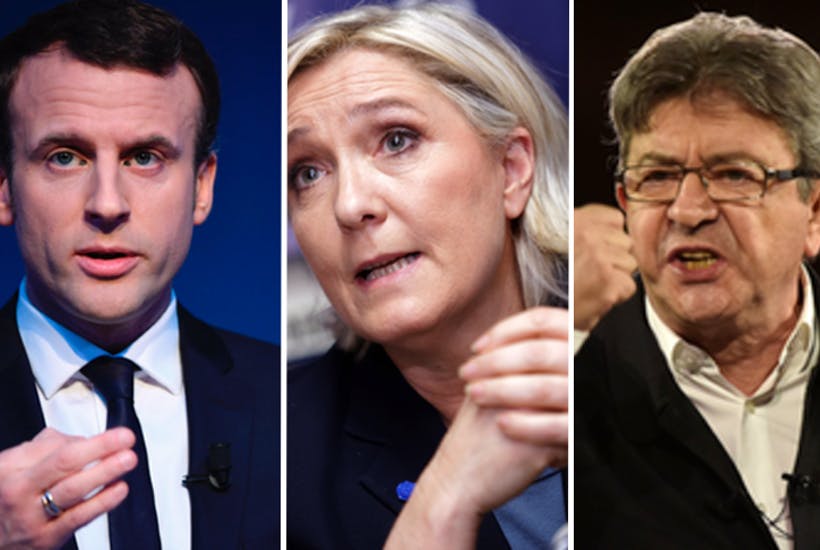French elections
April 25, 2017 | Expert Insights

Amidst the outcry over Brexit, a curveball in the form of French Elections has thrown the European Union into distress. In the run-up to vote, attention from both inside and outside France has focused on the political and economic consequences of a potential Frexit from the European Union. With the deadly attack on police officers by a small –time criminal on 20th April, allegedly inspired by the Islamic State, the focus is drawn towards the potential impact of the same on the elections. Will the concerns over unemployment, security and stability of economy affect the results of the elections? Will elections alter the status quo within the European Union (EU)? Will it have any impact on UK’s trade relations post Brexit? Answers to these questions could potentially alter the political landscape of the European continent.
The first round of the 2017 French presidential elections to be held on 23rd April will witness the battle amongst the eleven candidates. In case there is no clear majority, the top two candidates will go through to a run-off vote on May 7. The four front runner candidates each promise to govern France using their own distinct methods and policies.
François Fillon, a conservative from the centre-right Republican Party expressed his opinions against federalism and maintains that there will not be any change in the EU bloc during his Presidency. On the other hand Marine Le Pen, the leader of the far-right National Front adopted a hard-line stance on immigration along with automatic shut down of ‘extremist’ mosques. She hopes to negotiate terms with Brussels on a restructuring the EU following a referendum of France’s exit from the EU. While Emmanuel Macron, the former economy minister, is an independent centrist who believes in strengthening the French economy through labour and other structural reforms. He also hopes to revive the Franco-German influence over the EU. Jean-Luc Mélenchon, a hard-left candidate who created the “Unsubmissive France” movement hopes to establish a “Sixth Republic” to replace the existing Presidential system and along with hopes of France to exit the EU block. He has also accused the West of provoking Russia with its missle-defense systems. He hopes to revive the historically close French-Russia ties which could prove to be detrimental to France’s alliance with the United States. The diversity in the ideologies of these candidates raises concerns over elections impact on the EU, the UK and the rest of the Western world.
Various factors need to be considered to predict the outcome of the elections. One such factor is the recent terror attack in Paris. The death of the police officer raised speculation of a swing. Dr. Robb Willer, sociologist from Stanford has said that terrorism typically ratchets up nationalistic impulses in presidential campaigns. The Spanish general elections of 2004 and Bush’s term at White House post 9/11 have proved that acts of terror can sway the opinions of the citizens to vote for candidates who adopt nationalistic policies. In the present case, political analysts have predicted that the attack could boost Pen’s run for Presidency due to her hard-in line stance against immigration and extremism. But there always exists uncertainty and predictions could go wrong.
France, often seen as a beacon of democratic ideals, is the world’s sixth-largest economy and is one of five permanent members of the United Nations Security Council as well as a member of the NATO. The French defence and foreign policy could change with candidates like Mélenchon leaning towards Russia or Macron emphasising the need to stabilise the economy within the EU bloc while criticizing Putin or Pen’s stance to have stringent policies while favouring a potential Frexit is elected as the President. However, potential Presidency of Macron could prove to be beneficial to the EU and UK.”
His vision to reform France while staying in the EU bloc, leaves room for negotiations for the UK with respect trade relations post Brexit. On the other hand Presidency of Pen or Mélenchon will throw the EU off balance. The cooperation between France and Germany has enabled the EU to stay afloat. France exiting the EU will not only destroy the very foundation on which the EU was established but also result in economy of Europe plummeting. France is the only country in Europe with nuclear weapons capability and together with Germany, it has been the bedrock of European defence.
The French election could impact not just on the EU but the rest of the western world as well. It could encourage other member countries to exit the EU. The existence of the Fifth Republic, the dual executive system, can however delay immediate implementation of these diverse policies adopted the candidates, since in France the President has to take parliamentary approval to put their policies into action. This could to a large extent mitigate the impact on EU in the short term. The French elections will determine the fate of Europe.








Comments